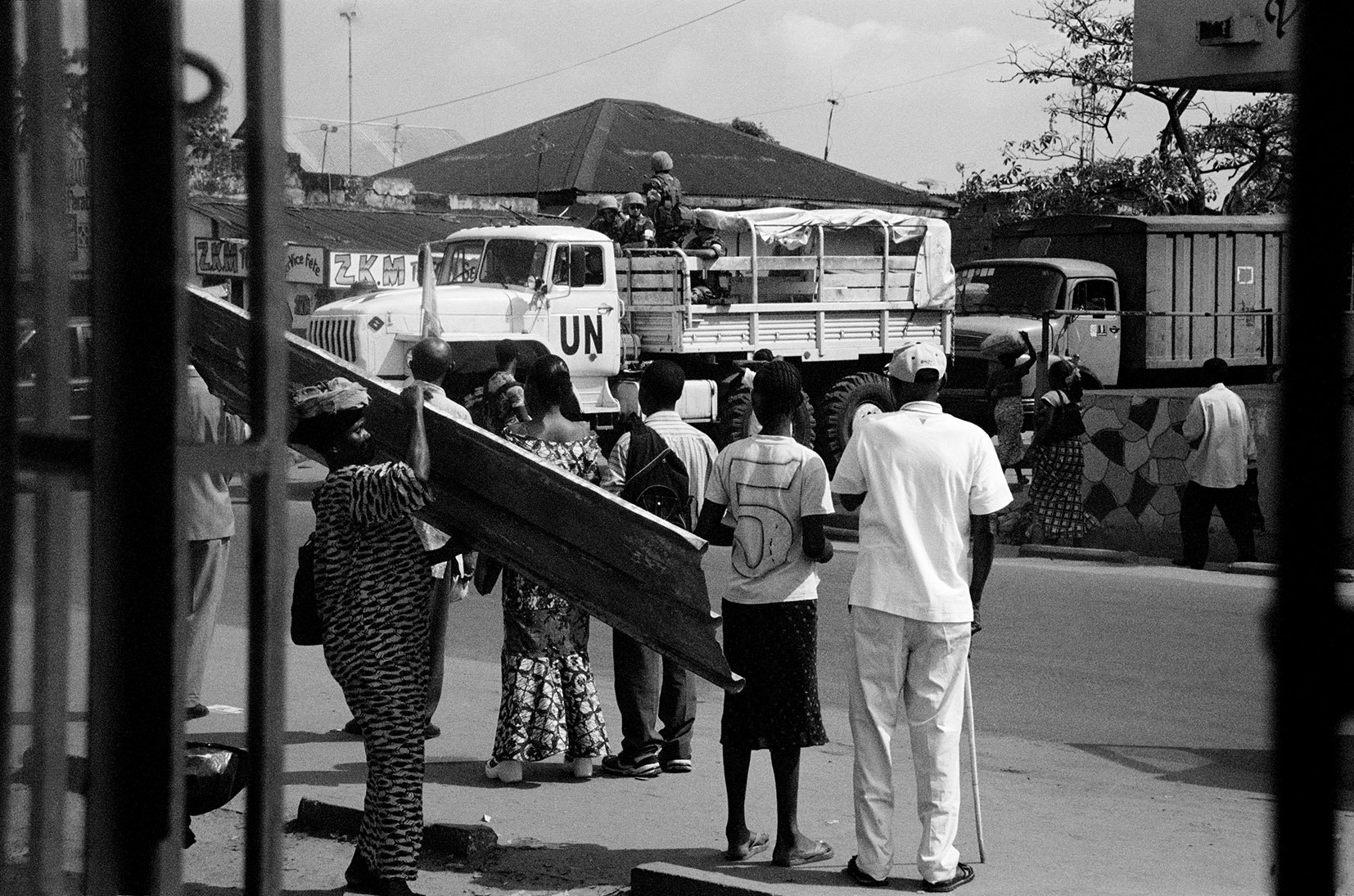Kinshasa
Kinshasa Diaries
So be it.
There is a bridge in the north of South Africa called the Beit Bridge, named after the villain financier and art collector Sir Alfred Beit. He was the German-Jewish friend of Cecil John Rhodes, advocate of Anglo-Saxon as the super race, who persuaded him to become a British citizen. If you venture beyond this bridge you only find jungle and wildlife lurking. Benighted and dark Africa of Joseph Conrad’s “Heart of Darkness” lurks in the beyond, the perimeter of the realm. And that is what I was raised and taught to believe. Beit Bridge is a ‘so be it’ bridge.
This leery and gloom vision of Africa beyond South Africa was incinerated into my brain as I tried to go to Kinshasa in December 2006. Mobutu Sese Seko did not help dispel my feelings about the Congo when he staged his greatest PR coup in placing his fledgling country, that he named Zaire, on the world map. He got the very famous boxer Mohammed Ali to ‘rumble in the jungle’ in Kinshasa with George Foreman, to the accompaniment of taunts and chants leading up to and during the fight, “Ali, Ali, bomaye!” meaning “Ali kill!”.
One evening on the TV in my house in Johannesburg I heard a compatriot making a comment in the Sotho vernacular, lamenting their visit in the north: “There was an armpit smell in the air everywhere”. I think it is Martha Gellhorn, wife of Ernest Hemingway, who first shed light on this kind of racism, that of smell. In her instance, when she was in Kenya, the denizens there thought White people represented, death for their lack of smell.
I missed my first flight on Monday through over-bookings by South African Airways. I also missed the next flight, which was to be on Wednesday. I was kicked out of the airport because I was considered to be too drunk to fly. When I finally flew on Friday I did not know what awaited me at my destination.
Now, I am always afraid of the border police and customs officials because of the powers they wield. And this is not irrational. The fear is informed by my own travel experiences. It appears that customs people almost always devise ways to prevent me from passing through because of my skin colour. At Charles De Gaulle Airport I was once asked for my “pass” book (an apartheid relic) by some smart-ass customs official who knew something about South Africa.
In Slovakia a “conscientious” border policeman asked my girlfriend to pay him Euro 50 in order to let us pass
through seeing she had neglected to sign her international driver’s license. We laughed and decided maybe we should turn around and drive back.
So, I arrive in Kinshasa. At customs they want to fly me straight back to Johannesburg, on a technicality. Wait a minute. It took me the whole of a working week to get there. I had to call the French Cultural Institute in Johannesburg to intervene in order for me to be allowed to go through. As I leave the airport - a soporific smell and the heat bludgeon me.
My stay in the great lakes region in the Congo was characterized by erratic water supply and constant electricity blackouts. In the time I was in Kinshasa I never experienced any violence except on one rare occasion. You can sense menace and smell violence when you find yourself in the company of the military or people in uniforms. People in Kinshasa are industrious and generally pleasant. I could walk at 2am in the morning with my cameras and laptop without any worry except if I was smoking a cigarette, which invites the pests and lowlifes. Carrying my equipment around at this hour is not something I can do in my own neighbourhood in Johannesburg.
Pickpockets you will find at the bus and taxi terminuses in Kinshasa. I learned the word ‘tumble-dry’, which means beating the shit out of an aberrant thief or low-life, when I got mugged one night after I came from an excursion in the mountains, where I was chasing shadows. I have also learnt that it is not wise to try and bribe the only official that happens to be above corruption in a country laced with the practice. The attempt to do so by one of my interpreters helped scupper my plans for a project in Kinshasa.
The Congolese dancer, Faustin, suggests that selling Zaire off to the highest bidder can solve the problems of Zaire, and to this I wonder. The Congo is already mortgaged off to numerous foreign interests. On a positive note, King Leopold II of Belgium did not kill off the spirit of the people of Zaire. Instead, Charles Taylor in Liberia copied Leopold’s nefarious practice of chopping hands and he is being tried at the International Court of Justice at The Hague. Kinshasa is just another city in Africa. It is a foil, a blank canvas on which people can project their own imaginings.
Santu Mofokeng, 2008/10/01.



















